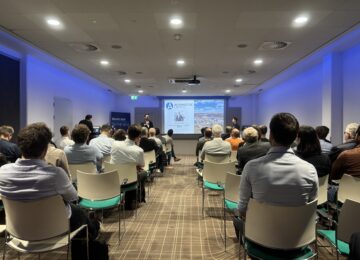Initial reaction to IBO study: investment of 200 billion nowhere near necessary
Response of Holland Solar, NedZero and Energy Storage NL to the IBO study Financing Electricity Infrastructure
The IBO study published today shows that firm investments will have to be made in expanding our electricity networks in the coming decades. Electricity consumption in the Netherlands is expected to quadruple in the coming years. It is logical that substantial investments in the electricity grid will therefore be needed. However, this required investment could be much lower than currently suggested. The government concludes that electrification and flexibilization alone could save over 20% of the cost of expanding the onshore grid.
In large part, rising grid costs are unavoidable and it is important that the power grid be expanded quickly. At the same time, higher grid costs need not lead directly to higher energy bills. The IMF estimates that each percent of renewable energy in the electricity mix results in a 0.6% lower electricity price [1]. The NVDE calculated that Dutch households would spend €140.00 more on energy costs in 2023 if we had not had wind and solar power [2]. Wijnand van Hooff, general director Holland Solar comments, "We need to look at the energy bill for households and businesses as a whole. Report after report shows that using more locally produced electricity from renewable sources instead of imported natural gas or oil leads to a cheaper energy supply for society as a whole."
Holland Solar, NedZero and Energy Storage NL (ESNL) see many opportunities to reduce higher grid infrastructure costs by making better use of the grid. Van Hooff continues: "By bringing energy production and use closer together through demand-side management, storage and conversion, the total costs as listed in the report can be significantly reduced." The way you shape that flexibility must explicitly take into account the effect on the market and the overall energy system. "Energy storage - both in electricity, heat and molecules - is therefore an absolute 'must' to keep the system affordable," said Maarten van den Heuvel - President Energy Storage NL. "Research by Kalavasta shows that use of energy storage will save many billions in 2040 [3]. Van den Heuvel continues: "Through energy storage and conversion, we can work towards a more affordable energy system, but for this to happen, it is necessary that Cabinet presents measures for further stimulation of energy storage and conversion in the Spring Memorandum."
Finally, close attention must be paid to where the aforementioned costs will land. If too many costs are placed with the market, this will have an inhibiting effect on the energy transition and will delay and further negatively affect the affordability of energy bills. This is because placing too many costs with producers increases the costs of the entire energy system, because the higher costs and risks for market parties lead to higher financing costs. Direct consequences are higher electricity prices and thus higher energy bills for households and businesses. Spreading the temporarily high network costs over several years by having the government guarantee loans from network operators or (as in Germany, France and Belgium) co-finance more of the network costs is also a better alternative from a social point of view.





